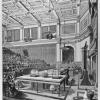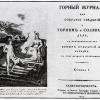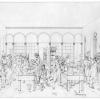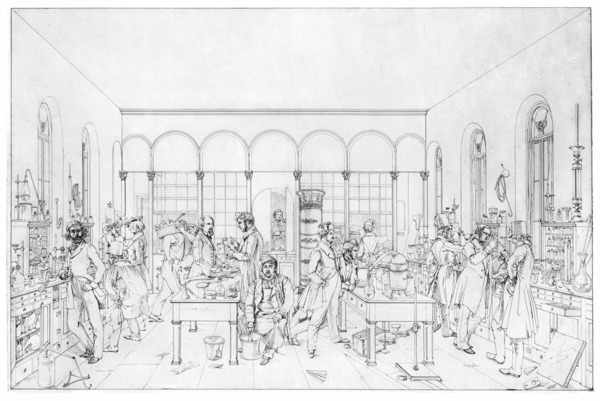The German 'academic' style of expertise
The model of technical education adopted in Germany was very different than that in France and Russia.
The German schools that developed in the late nineteenth century favored the “academization” of engineering training, with a focus on laboratory research. This led to advances in natural sciences and the emergence of science-based industries, particularly chemical and electrical.
Many individual scientists, such as Justus von Liebig (1803–1873), a pioneer in food chemistry, contributed to the formation of this model by establishing laboratories through German universities, introducing the scientific methods of research into the teaching process. Although it helped to produce outstanding results in the development of science and technology, it also broadened the gap between theory and practice in German engineering training.
The differences between French and German models of engineering education were mirrored in the status of these polytechnic institutions and, indirectly, in the social recognition of their graduates. While the higher technical schools in France had higher status than the universities, the German polytechnics held lower status.
Nevertheless, many countries, including Japan and the United States, adopted the German model of technical education, albeit with certain adaptations.
 Previous Story
Next Story
Previous Story
Next Story
How to cite this page
Slawomir Lotysz, 'The German 'academic' style of expertise', Inventing Europe, http://www.inventingeurope.eu/story/the-german-academic-style-of-expertise
Sources
- Gispen, Kees. New Profession, Old Order: Engineers and German Society, 1815-1914. Cambridge: Cambridge University Press, 1989.




















